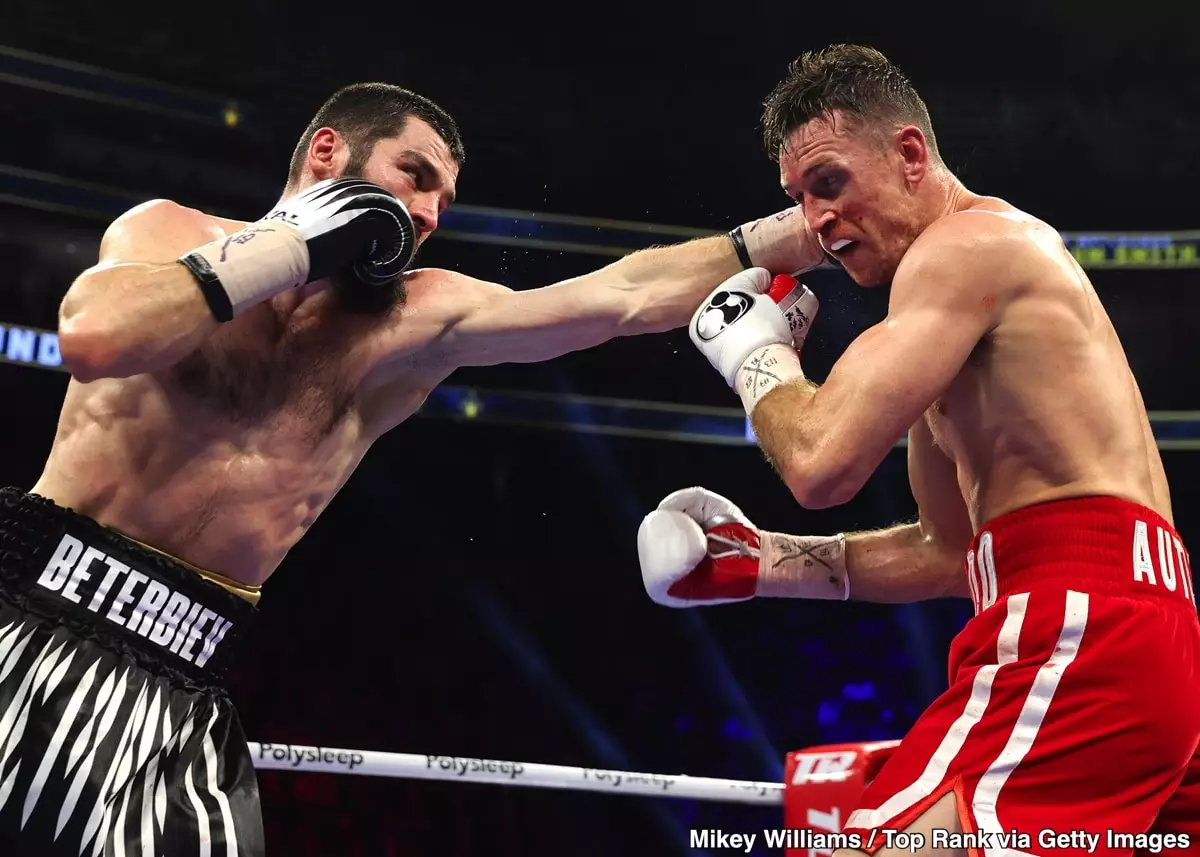As the boxing world eagerly awaits the highly anticipated rematch between Dmitry Bivol and Artur Beterbiev on February 22nd in Riyadh, various opinions and analyses emerge, particularly from those who have shared the ring with Beterbiev. Callum Smith, a former opponent of Beterbiev, has recently voiced his expectations, suggesting a shift in preference towards Bivol. This perspective not only reflects on Beterbiev’s current form but also brings into focus the complexities that influence boxing outcomes, such as age, recovery from injuries, and the psychology of fighters.
Smith’s comments provide a thoughtful critique of the potential implications of aging in a sport as demanding as boxing. At 40 years old, Beterbiev is at a stage where many professional athletes start to feel the physical toll of their career. Smith suggests that age may have dulled Beterbiev’s once-explosive style, which played a significant role in his victories.
However, while Smith hints at a decline, it’s crucial to recognize the exceptional circumstances surrounding Beterbiev’s previous fight against Bivol, where he was still recovering from knee surgery. The decision to take a high-stakes match shortly after such an invasive procedure raises questions about the fighter’s decision-making and his ability to perform at peak levels. Smith’s observation that Beterbiev may no longer reflect the same explosive prowess is valid, but it also begs the question of whether the last fight was an indication of Beterbiev’s decline or more a result of forced setbacks.
Dmitry Bivol, with a record of 23-1, represents a different boxing philosophy than Beterbiev. Known for his technical skill and defensive capabilities, Bivol excels in creating space and avoiding exchanges. However, Smith’s critique of Bivol suggests that he may lack the instinct to stand and trade blows with a fighter like Beterbiev, who can bring raw power to the ring. This dynamic creates an intriguing subplot for their rematch: will Bivol’s finesse outmaneuver Beterbiev’s ferocity, or will he be overwhelmed by the latter’s strength?
Smith’s viewpoint indicates that Bivol may need to abandon his avoidance tactics if he aims to secure a victory in the rematch. As Smith remarks, if their first bout was closely contested, a second encounter might see Beterbiev more prepared, potentially coming out aggressively early in the fight. This could force Bivol into a position where he either has to engage more directly or risk losing again due to a favoritism towards aggression from the judges.
In addition to physical capabilities, psychological factors play a pivotal role in boxing. The mental burden of past performances can lead to hesitancy and second-guessing during crucial moments in a match. Smith’s assertion that the first fight had a ‘draw-like’ quality suggests that both fighters ascended to higher levels of competence that night; however, the psychological weight that Beterbiev now carries—especially after a challenging last bout—might impact his approach entering the rematch.
Smith’s belief that Bivol could slightly edge the fight due to the advancing age of Beterbiev emphasizes this psychological divide. If Beterbiev has indeed shown signs of vulnerability or fatigue, Bivol’s confidence could amplify, enhancing his performance. Conversely, if Beterbiev channels his experience and internal willpower, he may transform any perceived weaknesses into strengths, using them as motivation for an even more formidable performance.
The upcoming rematch between Bivol and Beterbiev is not just about two fighters with impressive records facing off; it embodies layers of complexity including physical condition, psychological preparation, and style contrasts. Smith’s insights reveal relevant considerations, such as Beterbiev’s age and recovery along with Bivol’s tactical choices. As the boxing world turns its gaze toward Riyadh, fans and analysts alike will be intensely focused on whether Bivol can tactically outmaneuver his aged rival or if Beterbiev will defy expectations, showcasing the raw power that brought him such acclaim in his early career. Ultimately, this match could significantly alter the landscape of the light heavyweight division, making it a highly anticipated boxing event.

